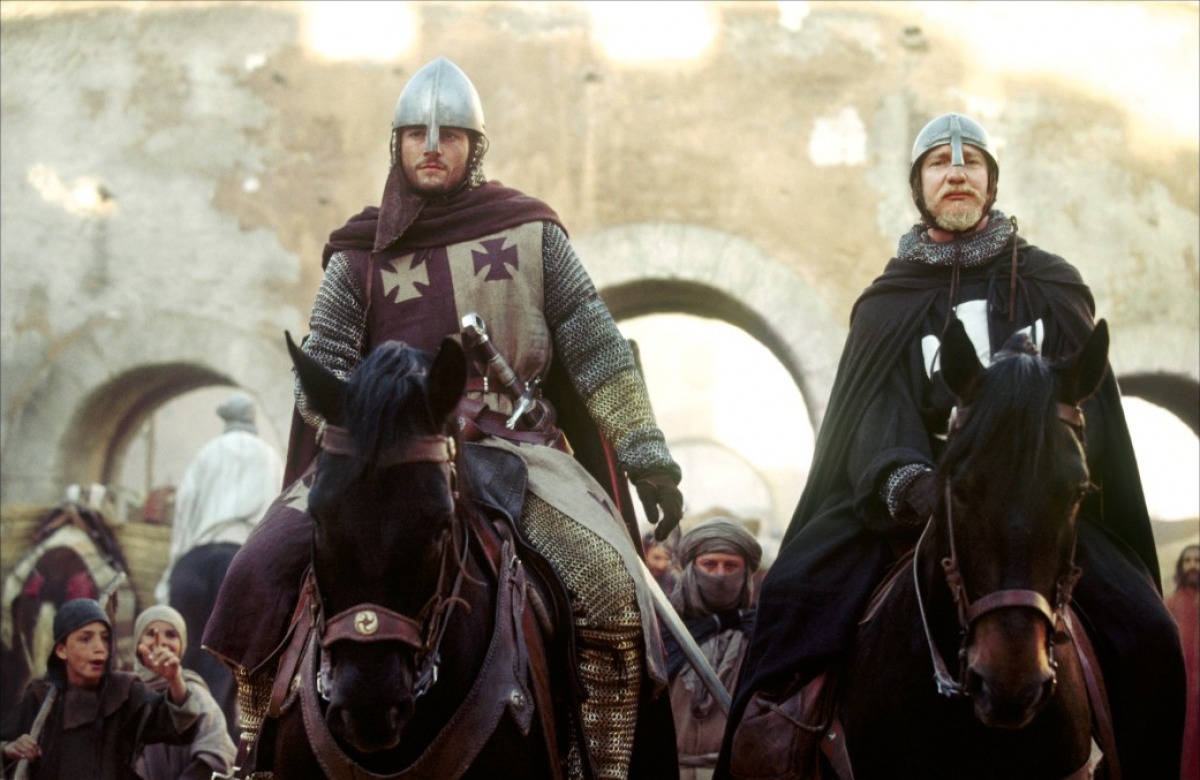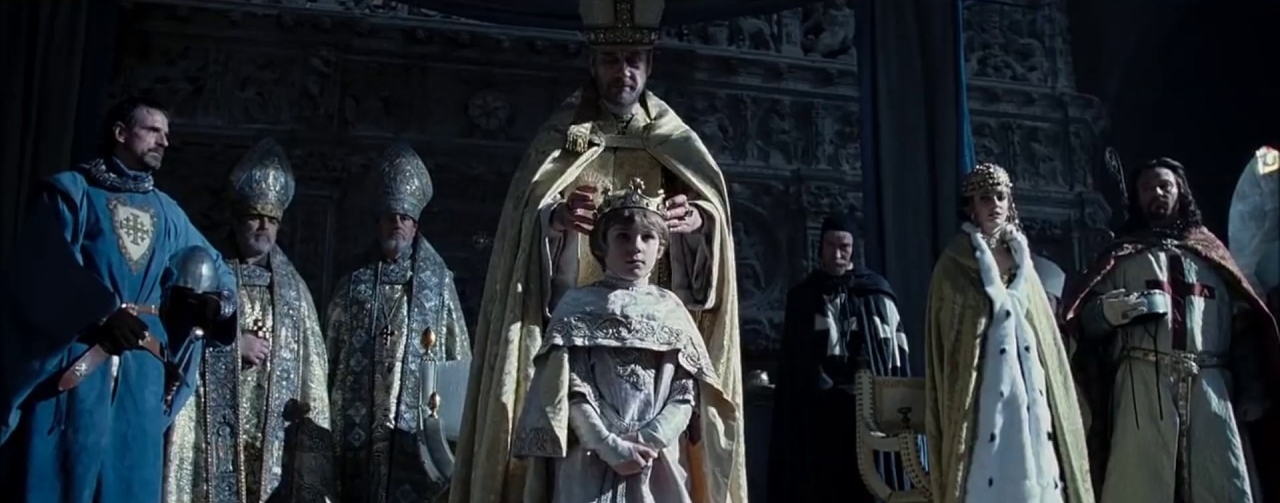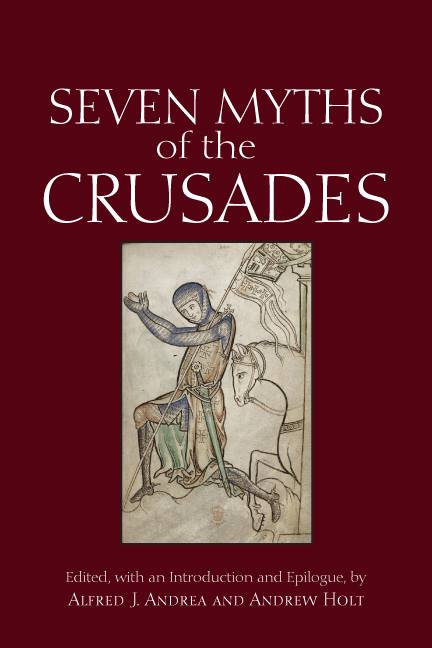A Time of Gifts relates Fermor's adventures, at the age of 18, through Europe. Expelled from school, restless at the thought of a career in the army, and bored with formal education, Fermor decided to hike his way across Europe, alone. He borrowed a few pounds from friends, kitted himself out in London, and took a steamer to the Hook of Holland, where he landed in December 1933. His goal: Constantinople, at the other end of the continent.
I'm about halfway through. Fermor has traveled up the Rhine, cut diagonally across southern Germany via the Neckar and over the Danube, and has just arrived in Salzburg. It's a pure delight.
Fermor based this book on his memories, notes, letters, and diaries of 1933-34 but wrote and published it in the 1970s, and he brings that longer perspective to bear on a number of occasions. (Examples below.) After his trip, he did serve in the British military, fighting in special operations on Crete and living in caves between guerrilla strikes. His most famous exploit was kidnapping a German general. He went on to a life of further adventure and worldwide travel, but the war looms largest over A Time of Gifts. Many of the places and people he meets along the Rhine, Neckar, and Danube in the early 1930s would be irreversibly changed—if not destroyed—within a decade.
This hindsight lends A Time of Gifts a powerful sense of nostalgia and pathos. Fermor's youthful exuberance, naivete, and awkwardness are humorous and fun to read about, and his willingness to laugh at himself immediately wins one over. But over and over, turning his reminiscences bittersweet, are the offhand comments, asides, and footnotes about what survived the war and what didn't. Sic transit gloria mundi.
Below I've copied a few of my favorite passages of A Time of Gifts so far. Please do check out the whole book. I've enjoyed it immensely so far.
* * * * *
One fun thing, for me, is that I've been to a number of the places Fermor describes. Here he narrates his approach, moving upriver along the Rhine, to Cologne, the first sign of which, even today, from fifty miles off on the Autobahn, is the twin spires of the Kölner Dom:
After a first faraway glimpse, the two famous steeples grew taller and taller as the miles that separated us fell away. At last they commanded the cloudy plain as the spires of a cathedral should, vanishing when the outskirts of the city interposed themselves, and then, as I gazed at the crowding saints of the three Gothic doorways, sailing up into the evening again at close range. Beyond them indoors, although it was already too dark to see the colours of the glass, I knew I was inside the largest Gothic cathedral in Northern Europe. Except for the little constellation of tapers in the shadows of a side-chapel, everything was dim. Women knelt interspersed with nuns and the murmured second half of the Gegrüsset seist Du, Maria rose in answering chorus to the priest's initial solo; a discreet clatter of beads kept tally of the accumulating prayers. In churches with open spires like Cologne, one could understand how congregations thought their orisons had a better start than prayers under a dome where the syllables might flutter round for hours. With steeples they follow the uprush of lancets and make an immediate break for it.
Here Fermor, with wry wit, describes finding himself in church in Coblenz with a bunch of Nazis:
It was the shortest day of the year and signs of the seasons were becoming hourly more marked. Every other person in the streets was heading for home with a tall and newly felled fir-sapling across his shoulder, and it was under a mesh of Christmas decorations that I was sucked into the Liebfrauenkirche next day. The romanesque nave was packed and an anthem of great choral splendour rose from the gothic choir stalls, while the cauliflowering incense followed the plainsong across the slopes of the sunbeams. A Dominican in horn-rimmed spectacles delivered a vigorous sermon. A number of Brownshirts—I'd forgotten all about them for the moment—was scattered among the congregation, with eyes lowered and their caps in their hands. They looked rather odd. They should have been out in the forest, dancing round Odin and Thor, or Loki perhaps.
Fermor reaches another German town, one I know pretty well—Heidelberg—just before the new year. This is as perfect a description of the sensory joy of thawing out after a day in the snow as you can find:
This was the moment I longed for every day. Settling at a heavy inn-table, thawing and tingling, with wine, bread, and cheese handy and my papers, books and diary all laid out; writing up the day's doings, hunting for words in the dictionary, drawing, strangling with verses, or merely subsiding in a vacuous and contented trance while the snow thawed off my boots.
Fermor is at Zum roten Ochsen, the Red Ox, a famous Heidelberg Inn that's still in operation. He stays for a few days at the behest of the generous owners, Herr and Frau Spengel, and tours the town, University, and Heidelberg Castle with their son, Fritz:
Frau Spengel insisted that it was absurd to set off on New Year's Day; so I spent another twenty-four hours wandering about the town and castle and reading and writing and talking with this kind and civilized family. (My sojourn at the Red Ox, afterwards, was one of several high points of recollection that failed to succumb to the obliterating moods of war. I often thought of it.)
And appended to this paragraph is this footnote:
After writing these words and wondering whether I had spelt the name Spengel right—also to discover what had happened to the family—on a sudden impulse I sent a letter to the Red Ox, addressed "to the proprietor." A very nice letter from Fritz's son—he was born in 1939—tells me that not only my host and hostess are dead, but that Fritz was killed in Norway (where the first battalion of my own regiment at the time was heavily engaged) and buried at Trondheim in 1940, six years after we met. The present Herr Spengel is the sixth generation of the same family to own and run this delightful inn.
I could post many, many more, but I'll conclude with the longish chunk from Munich that first brought my attention to Fermor and his work:
I had expected a different kind of town, more like Nuremberg, perhaps, or Rothenburg. The neo-classical architecture in this boreal and boisterous weather, the giant boulevards, the unleavened pomp—everything struck chill to the heart. The proportion of Storm Troopers and S.S. in the streets was unusually high and still mounting and the Nazi salute flickered about the pavement like a tic douloureux. Outside the Feldherrnhalle, with its memorial to the sixteen Nazis killed in a 1923 street fight nearby, two S.S. sentries with fixed bayonets and black helmets mounted guard like figures of cast-iron and the right arms of all passers-by shot up as though in reflex to an electric beam. It was perilous to withhold this homage. One heard tales of uninitiated strangers being physically set-upon by zealots. Then the thoroughfares began to shrink. I caught a glimpse down a lane of Gothic masonry and lancets and buttresses and further on copper domes hung in convolutions of baroque. A Virgin on a column presided over a slanting piazza, one side of which was formed by a tall, Victorian-Gothic building whose great arched undercroft led to a confusion of lesser streets. In the heart of them stood a massive building; my objective, the Hofbräuhaus. A heavy arched door was pouring a raucous and lurching party of Brownshirts onto the trampled snow.
I was back in beer-territory. Halfway up the vaulted stairs a groaning Brownshirt, propped against the wall on a swastika'd arm, was unloosing, in a staunchless gush down the steps, the intake of hours. Love's labour lost. Each new storey radiated great halls given over to ingestion. In one chamber a table of S.A. men were grinding out Lore, Lore, Lore, scanning the slow beat with the butts of their mugs, then running the syllables in double time, like the carriages of an express: "UND—KOMMT—DER—FRÜHLingindastal! GRÜSS—MIR—DIE—LORenocheinmal". But it was certain civilian figures seated at meat that drew the glance and held it.
One must travel east for a hundred and eighty miles from the Upper Rhine and seventy north from the Alpine watershed to form an idea of the transformation that beer, in collusion with almost non-stop eating—meals within meals dovetailing so closely during the hours of waking that there is hardly an interprandial moment—can wreak on the human frame. Intestine strife and the truceless clash of intake and digestion wrecks many German tempers, twists brows into scowls and breaks out in harsh words and deeds.
The trunks of these feasting burghers were as wide as casks. The spread of their buttocks over the oak benches was not far short of a yard. They branched at the loins into thighs as thick as the torsos of ten-year-olds and arms on the same scale strained like bolsters at the confining serge. Chin and chest formed a single column, and each close-packed nape was creased with its three deceptive smiles. Every bristle had been cropped and shaven from their knobbly scalps. Except when five o'clock veiled them with shadow, surfaces as polished as ostriches' eggs reflected the lamplight. The frizzy hair of their wives was wrenched up from scarlet necks and pinned under slides and then hatted with green Bavarian trilbys and round one pair of elephantine shoulders a little fox stole was clasped. The youngest of this group, resembling a matinee idol under some cruel spell, was the bulkiest. Under tumbling blond curls his china blue eyes protruded from cheeks that might have been blown up with a bicycle pump, and cherry lips laid bare the sort of teeth that make children squeal. There was nothing bleary or stunned about their eyes. The setting may have reduced their size, but it keyed their glances to a sharper focus. Hands like bundles of sausages flew nimbly, packing in forkload on forkload of ham, salami, frankfurter, krenwurst and blutwurst and stone tankards were lifted for long swallows of liquid which sprang out again instantaneously on check and brow. They might have been competing with stop watches, and their voices, only partly gagged by the cheekfuls of good things they were grinding down, grew louder while their unmodulated laughter jarred the air in frequent claps. Pumpernickel and aniseed rolls and bretzels bridged all the slack moments but supplies always came through before a true lull threatened. Huge oval dishes, laden with Schweinebraten, potatoes, Sauerkraut, red cabbage and dumplings were laid in front of each diner. They were followed by colossal joints of meat—unclassifiable helpings which, when they were picked clean, shone on the scoured chargers like calves' pelvises or the bones of elephants. Waitresses with the build of weight-lifters and all-in wrestlers whirled this provender along and features dripped and glittered like faces at an ogre's banquet. But all too soon the table was an empty bone-yard once more, sound faltered, a look of bereavement clouded those small eyes and there was a brief hint of sorrow in the air. But succour was always at hand; beldames barged to the rescue at full gallop with new clutches of mugs and fresh plate-loads of consumer goods; and the damp Laestrygonian brows unpuckered again in a happy renewal of clamour and intake.
I strayed by mistake into a room full of S.S. officers, Gruppen- and Sturmbannführers, black from their lightning-flash-collars to the forest of tall boots underneath the table. The window embrasure was piled high with their skull-and-crossbones caps. I still hadn't found the part of this Bastille I was seeking, but at last a noise like the rush of a river guided me downstairs again to my journey's end.
The vaults of the great chamber faded into infinity through blue strata of smoke. Hobnails grated, mugs clashed and the combined smell of beer and bodies and old clothes and farmyards sprang at the newcomer. I squeezed in at a table full of peasants, and was soon lifting one of those masskrugs to my lips. It was heavier than a brace of iron dumb-bells, but the blond beer inside was cool and marvellous, a brooding, cylindrical litre of Teutonic myth. This was the fuel that had turned the berserk feeders upstairs into Zeppelins and floated them so far from heart's desire. The gunmetal-coloured cylinders were stamped with a blue HB conjoined under the Bavarian crown, like the foundry-mark on cannon. The tables, in my mind's eye, were becoming batteries where each gunner served a silent and recoil-less piece of ordnance which, trained on himself, pounded away in steady siege. Mass-gunfire! Here and there on the tables, with their heads in puddles of beer, isolated bombardiers had been mown down in their emplacements. The vaults reverberated with the thunder of a creeping barrage. There must have been over a thousand pieces engaged!—Big Berthas, Krupp's pale brood, battery on battery crashing at random or in salvoes as hands adjusted the elevation and traverse and then tightened on the stone trigger-guard. Supported by comrades, the walking wounded reeled through the battle smoke and a fresh gunner leaped into each place as it fell empty.
Hugely enjoyable book. Pick it up if you're at all interested in travel, Europe, or just a good memoir.



























